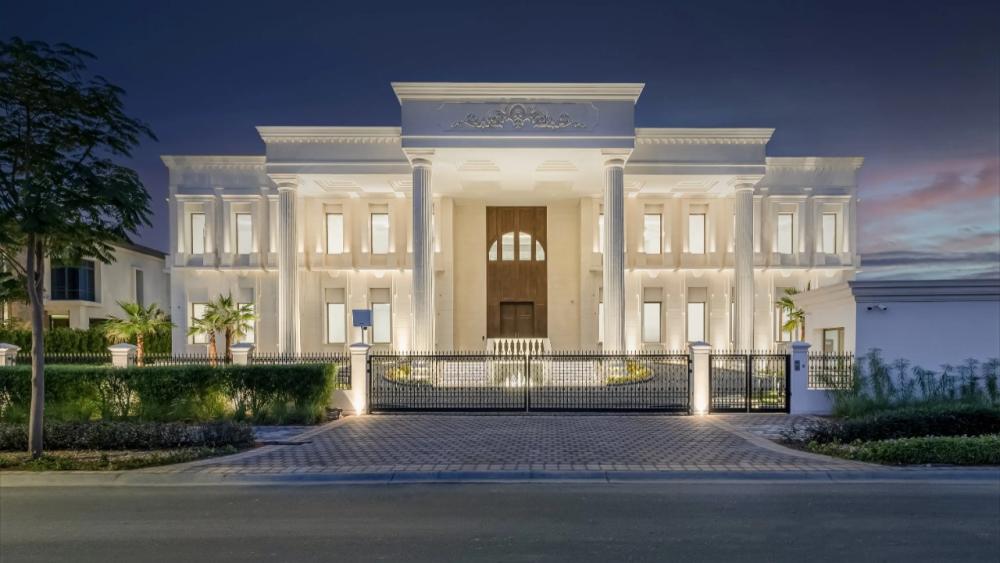Dubai is witnessing a new wave of luxury palaces and penthouses equipped with the latest amenities, such as cinemas, spas and private elevators, as developers seek to attract the wealthy from around the world, Bloomberg said. These luxury properties are offered at prices ranging from $60 million to more than $120 million, as buyers flock from Europe, Asia and the Americas to invest in the emirate’s glittering real estate market.
Among the unique innovations, one developer moved a giant glass wall over vast distances to provide the owner with a dedicated sea view, while another designed a private lobby and elevator exclusively for penthouse buyers that stretches between two towers. Another developer added a moving floor system in the swimming pool, so that it blends into the tiles when hosting parties.
Despite the slowdown in real estate prices in Dubai, after the huge increase they witnessed since 2021, developers are still adding more of these luxury homes in the city’s most prominent coastal locations. “The luxury sector is the most profitable, and if done right, developers can sell properties at the highest possible prices,” says Mark Phoenix, CEO of Sankari Properties, which is building a $1 billion ultra-luxury tower. Dubai’s property market bucks a global trend, with high-end real estate markets in many major cities slowing or declining.
What makes Dubai attractive to the wealthy is the more space they get for their money, with property prices in the emirate a third of those in New York and a fifth of those in London, according to Mahdi Amjad, founder of luxury apartment developer Omniyat. “We compare our buildings with New York and find that for the same or even lower prices, buyers get more space, more unique experiences and amenities,” he says.
Dubai is trying to compete with global cities with its stunning architectural designs. At one construction site, Bloomberg reporters saw a giant glass dome built over a swimming pool and spa that could be opened and closed as the owners wished. At other sites, winding pools were designed to allow residents to swim from the bar to the spa at the other end of the garden.
Billionaires Island, a man-made island shaped like a seahorse, has become one of the most prominent destinations for luxury homes in Dubai, and most of the mansions there have private beaches and even rotating parking tables that automatically direct cars in the right direction. But adding these luxury features comes at a high cost. “Luxury designs require huge costs in the early stages, which makes many developers reluctant to implement them,” says Phoenix.
Wissam Damaa, founder of Palace Group, a real estate development company, tells the story of a client who requested a 17-by-4-meter glass wall in his living room that could be completely hidden at the push of a button to enjoy an open sea view.
Damaa had difficulty finding a glass panel of this size, and when he approached one of the largest glass manufacturers in Germany, it took the company only 45 days to decide whether it could meet the request. After it agreed, a Swiss company had to step in to design the mechanical system to move the glass wall, which required building an underground chamber to hide the panel when it was lowered. The wall also required special permits to be transported to Dubai, due to its enormous size. “Most of our clients own homes in several cities around the world, and they are very specific about their requirements and expectations,” says Damaa.
Damaa is currently overseeing the construction of 15 new palaces, in addition to a residential building with 70 apartments, with a total value of Dh16 billion ($4.4 billion).

